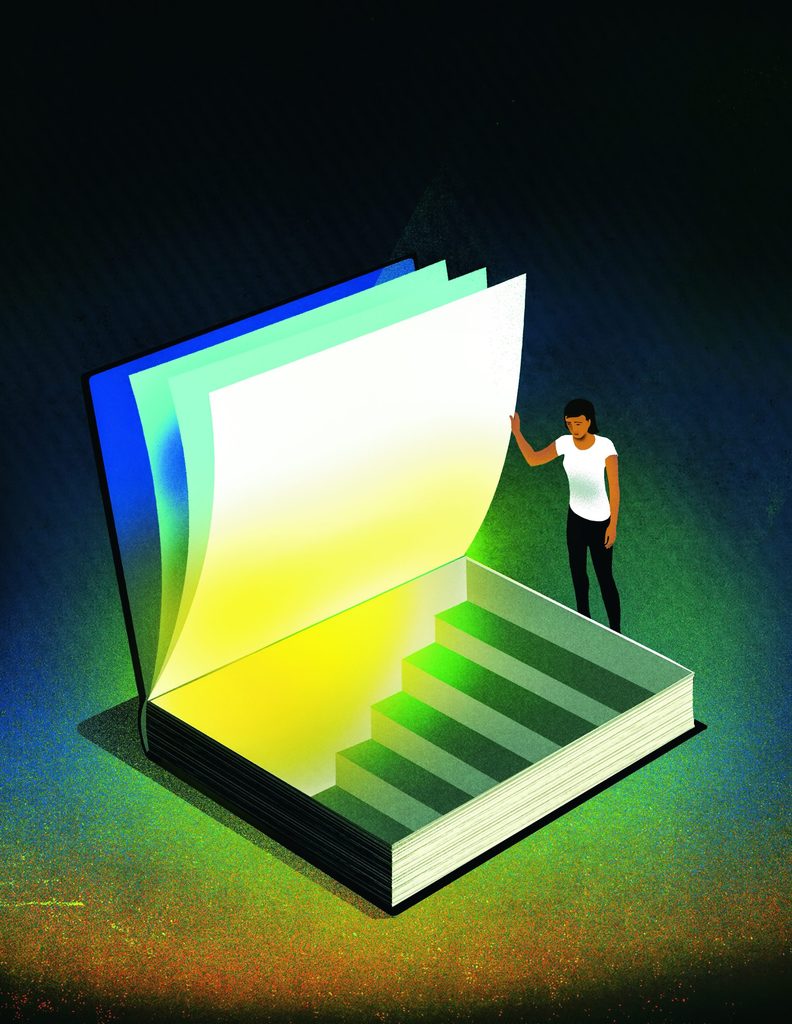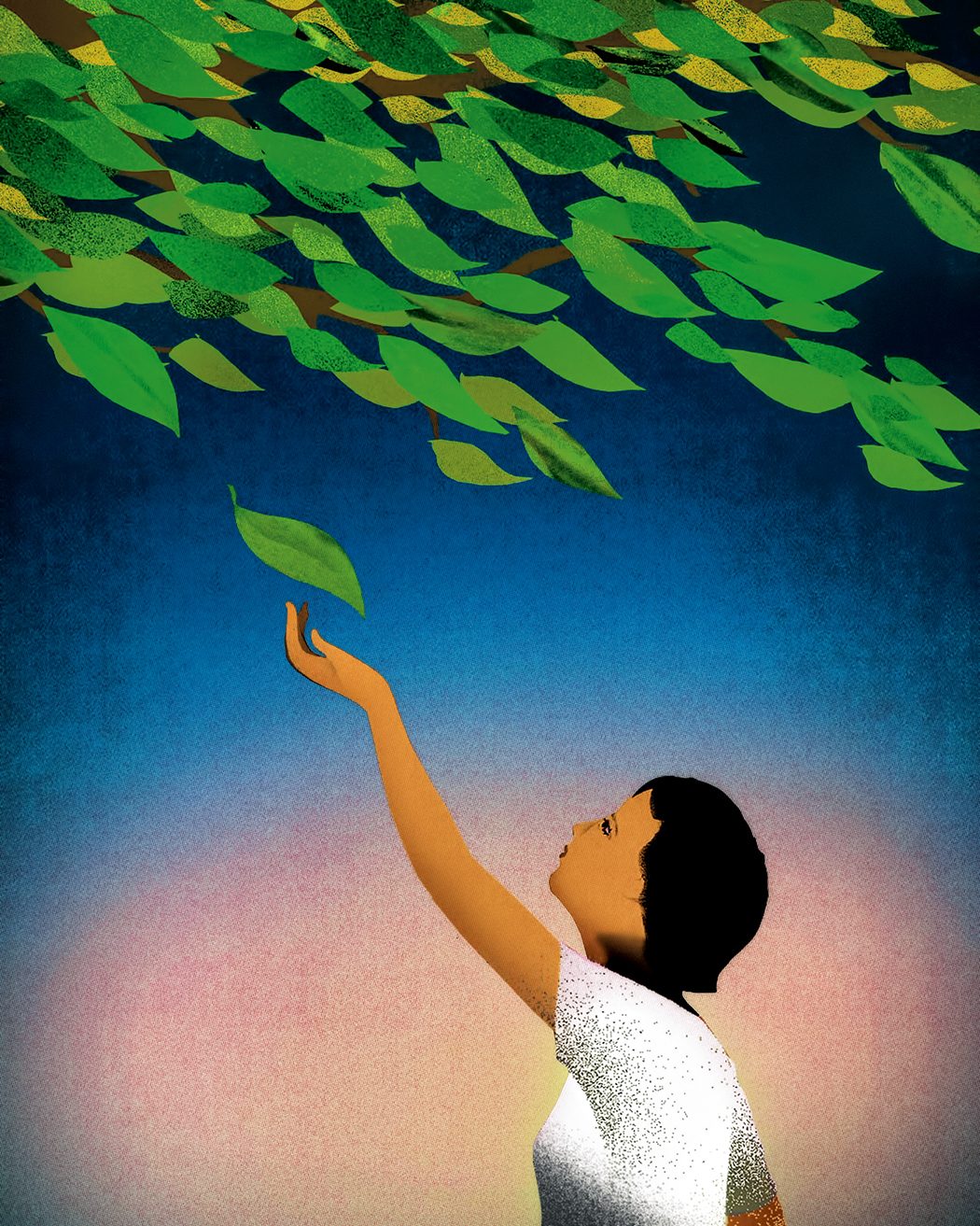Carleton’s philosophy class “Death, Dinner, and Discussion” offers students a chance to consider the unthinkable.

When it comes to most challenging human endeavors, critical thinkers often begin, if only unconsciously, by telling themselves something like: Let’s start with what we know. And yet, when it comes to the inevitable trajectory of our own lives, most of us take the opposite tack and ignore the only two things about which most of us are certain: We’re going to die, and we have no idea when or how it’s going to happen.
Philosophy professor Daniel Groll sought to challenge this all-too-human predilection by designing the course “Death, Dinner, and Discussion.” Inspired by his work on the Northfield Advance Care Planning Advisory Committee and his scholarship in medical ethics, the class encourages students to deeply consider, and then talk with their loved ones about, a subject too often left until it’s too late.
“It’s important to discuss one’s hopes, fears, and wishes about death well before the need is pressing,” Groll says. “So hopefully the course gets people talking. I also hope it makes students think more intentionally about what they want to do with their lives—how they want to spend their time.”
I came home to Carleton as a staff member just as Groll found himself short a co-teacher. As was the case the first time he ran the class, ours immediately filled to capacity with 15 seniors and a wait list of 26. Many of the students told us they took the course to understand why talking about death is taboo in mainstream Western culture. Others came through the door with questions both personal and global. James Gardner ’20 wanted to “think about how to prepare for the end.” Calla Slayton ’20 had never taken a philosophy course, and was grateful to be able to talk openly about delicate experiences and subject matter without having to worry about being inappropriate or hurtful.
Some in the class had lost a parent—or almost had. Some knew death only in the abstract. When he read the course description, Matt Thill ’20 was fascinated intellectually by the questions of why we should fear the end and how an awareness of death could affect the way we live. “I wondered if there might be a ‘best’ way to think about death, and what that would be,” he says. “I realized I didn’t have firm ideas or even ways of thinking to adequately address my own death.”
We discussed several books and short documentaries, including Kathryn Mannix’s With the End in Mind and Atul Gawande’s Being Mortal, works designed around case studies and stories of hospice and geriatric patients, and the situations they and their loved ones had to face. Outside of the classroom, we all came together to, as the syllabus promised, discuss death over dinner.
Death Over Dinner is, in fact, a Seattle-based nonprofit trying to bring conversations about dying into the mainstream. The organization collaborates with physicians, chaplains, palliative care experts, oncologists, gravestone designers, authors, curators, health care CEOs, and artists to make it easier, meaningful, and even enjoyable to talk about the previously unspeakable.
The organization’s philosophy informed our gatherings. Professor Groll and I put out food and drink and encouraged everyone to consider, in round-table fashion, various questions, including how, if given the choice, we wanted to die. And what that answer might imply about how we wanted to live. Ultimately, our goal was for students to organize their own discussions with family and friends.
We asked each other things such as: What do you regret about your life to date? When did you last experience joy? If you were diagnosed tomorrow with a limited number of days left to live, how might you change your life?

The questions sparked earnest conversation, and the students bravely allowed each other to be vulnerable and honest both emotionally and intellectually, as (in my experience as an alum) the most powerful Carleton classes demand. One recurring theme that emerged, in fact, involved finding ways to dispense with the anxiety that so often drives academic pursuits and move through life more joyfully.
I’m a novelist by training and trade. I am also a longtime hospice volunteer and am training as a Zen priest. As co-teachers, Groll and I found a good match. He might ask, after reading an iconic philosophical paper on dying, “What would count as a rational response to the death of a loved one?” And I might write across the chalkboard an Emily Dickinson poem:
That it will never come again
Is what makes life so sweet.
Believing what we don’t believe
Does not exhilarate.That if it be, it be at best
An ablative estate—
This instigates an appetite
Precisely opposite.
One morning in midwinter, I gave the class a koan to sit with in silence: What was your face before your mother and father were born? Could you show us? On another day, Groll hosted an entire hospice and palliative care team from Park Nicollet Methodist Hospital.
I even guided the class through a “dying meditation” I had repeatedly done while training as a hospice volunteer. The exercise, which includes imagining progressing from a terminal diagnosis to saying goodbye to loved ones, was a powerful one.
As the guide, I instructed each participant to write down on small slips of paper five people they love, five objects or things that are important to them, five activities they love, and five cherished memories. At regular intervals while describing the process of feeling unwell—going to the doctor, getting a diagnosis, seeking treatment, becoming fatigued, and eventually accepting imminent death—each participant was instructed to “give up one card.”
At certain points in the exercise, I chose a card at random from each participant, so they were deprived even of the choice of what to give up. There weren’t many dry eyes in the room when we finished. One student expressed her utter shock that the “game kept going” until all the cards were gone. “I thought we’d be left with two or three, to see what was important to us,” she said through tears.
Neither Groll nor I anticipated that the college would be closing spring term and that our students, all of whom were seniors, would be going home to face down a disease that often forces stricken individuals to suffer alone, unable to “die a good death” or have end-of-life wishes honored. We didn’t know that COVID-19 has been and will likely continue to be a worst-case scenario for many who—before this year—believed they were doing right by themselves and their loved ones by planning ahead.
That said, it’s a good guess that many of our students have thought about one of our more memorable texts: the breathtaking, horrifying, and almost incomprehensible Wave. Written by Sonali Deraniyagala, whose husband and children were killed by the 2004 tsunami that struck Sri Lanka, the memoir reminds readers that we don’t know how, and we don’t know when, but we are going to die.
